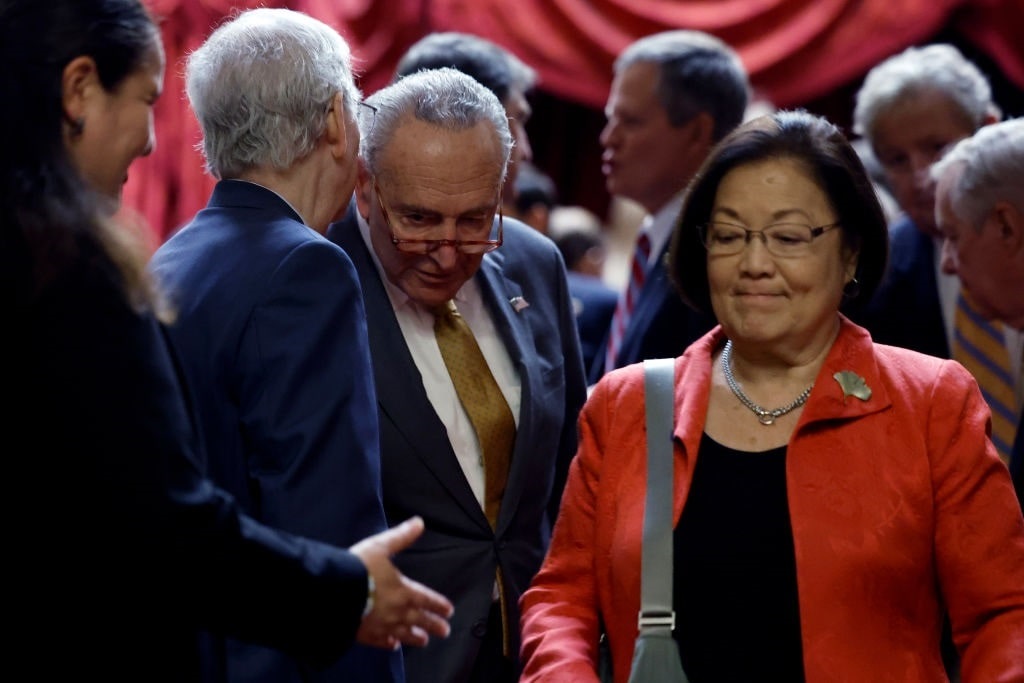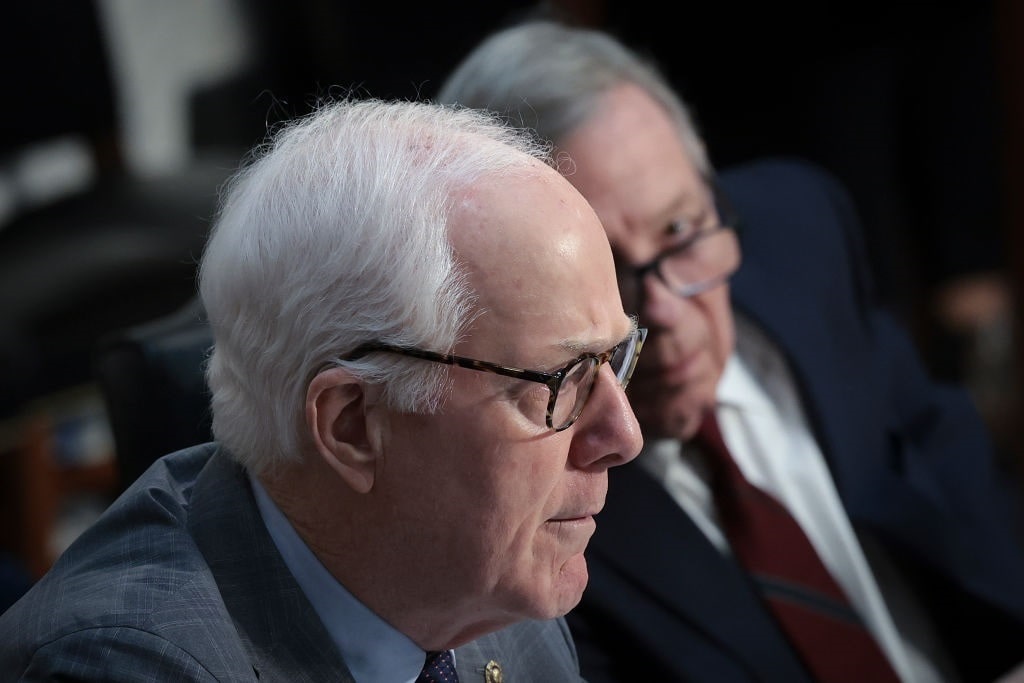In 2020, Americans were taught a harsh lesson on massive government overreach. They learned how easy it is for government officials at all levels – from federal down to county and city – to indefinitely suspend their constitutional rights from behind the heavily embroidered veil of public health. It is no coincidence, then, that Democrats have for years attempted to cover Second Amendment rights with that same veil. Thus, on Nov. 28, the Democrat-led Senate Judiciary Committee convened a hearing it called “The Gun Violence Epidemic: A Public Health Crisis.” This title was purely for dramatic effect, as it turned out. No nonpartisan observer could dispute the fact that Democrats on the committee utterly failed to make the case that gun violence is a public health issue. Indeed, there seemed to be no overt attempt to establish such a connection. Their agenda, it appeared, was something else entirely.
Neither the Democratic senators present nor their witnesses framed the so-called gun violence “epidemic” as a crisis of public health. Rather, their focus was on the power of the pro-gun rights lobby and the danger posed by a supposedly out-of-control Supreme Court.
The two biggest gun rights cases to go before the nation’s top court in recent years were District of Columbia v. Heller (2008) and New York State Rifle & Pistol Association Inc. v. Bruen (2022). The Supreme Court’s majority opinion in the former case affirmed that the Second Amendment protects an individual’s right to carry a firearm outside the home for self-defense and other lawful purposes. In the latter case, the majority ruled that the state of New York violated its residents’ constitutional rights by requiring them to show “proper cause” to obtain a concealed carry permit.
A Hearing on Gun Violence or the Supreme Court?

Mazie Hirono (Photo by Chip Somodevilla/Getty Images)
Judiciary Committee Democrats railed against these two Supreme Court decisions as confusing, dangerous, judicially improper, and overreach by the Court into the legislative branch’s territory. Sen. Mazie Hirono (D-HI) even went as far as implying that the Heller decision granted Americans a right they had never enjoyed. “Before Heller, which was a 2008 decision,” she said, “there was no explicit – in my view – right for individuals to own guns and also to own whatever guns they wanted.” For the Hawaii senator, it is as if the Second Amendment was never ratified. Heller did not establish an individual’s right to own a gun. In fact, gun ownership was not in dispute. The ruling in that case merely confirmed that the right of Americans to carry guns is guaranteed by the Second Amendment.
Committee Democrats tried to portray these two legal rulings as opening the floodgates for challenges to all other gun laws and, by extension, to a tsunami of murder and mayhem. They didn’t want to even acknowledge the far more direct and significant problem, though, which is their own soft-on-crime policies that have in the past two or three years led to multiple gun homicides committed by people who either did not go to prison for their previous crimes or were released early.
One of the Democrats’ witnesses, Stephen Lindley, a program manager with the anti-Second Amendment group Brady, had a hard time attempting to make the point that more guns in civilian hands equates directly to more gun violence. Lindley observed that his home state of California enjoys a far lower homicide rate per capita than most other American states. He attributed this to a tightening of gun laws in the Golden State. But no sooner had he made this point than he went on to explain, “We have more civilian-owned firearms than most other states. More than a quarter of Californians live in a gun-owning home and Californians purchased almost a million firearms last year.” He was trying to argue that, despite the state’s many restrictions on firearms, “the Second Amendment is alive and well in California.” Gun rights advocates would strongly dispute this statement, but Lindley demonstrated, perhaps unintentionally, that higher rates of civilian gun ownership do not correlate to increases in gun violence.
Crime Without Punishment, by the Numbers
Rafael Mangual, the Nick Ohnell Fellow at the Manhattan Institute, also testified at the hearing. Mangual was arguably the strongest witness, having come armed, so to speak, with plenty of criminal justice numbers that demonstrated how deadly an ever more lenient approach to dealing with violent repeat offenders has become.
Mangual quoted recently retired DC Metro Police Chief Robert Contee, who pointed out to members of the media that “the average homicide suspect has been arrested 11 times prior to them committing a homicide.” The witness quoted figures from other studies showing that violent offenders often have multiple previous arrests and/or convictions. He observed that the numbers bore out his claim that “decarceration” and “de-policing” policies are greatly exacerbating the problem of violent crime and gun violence. Mangual further noted that the dangerous effects of these policies – which are now actively pursued in Democrat-controlled jurisdictions across the country – “will be born disproportionately by the very same people living in the pockets of concentrated gun violence.”
The Public Health Crisis Clarion Call
By the time it was over, there was little doubt that Judiciary Committee Chairman Dick Durbin (D-IL) had engineered the hearing as an assault on the Supreme Court’s Heller and Bruen decisions – and by extension on the conservative-majority Court itself. Despite the hearing’s title, absolutely no justification was established to class gun violence as a public health issue. Indeed, the words “public health” may not have been uttered more than once, if at all. The phrases “public health crisis” and “public health emergency” are, for the political left, nothing more than clarion calls; they allow officials, both elected and unelected, to impose regulations and restrictions that would otherwise not stand up to legal scrutiny.
In the wake of the two Supreme Court rulings spoken of, Democrats know that they are losing the battle in the courts and so they need to declare gun violence an “emergency” that must be dealt with by whatever means necessary, even if those means are extrajudicial.
As for Second Amendment rights, a significant number of Democrats claim to support them, however, with a “but.” The new strategy is putting terms such as “public health crisis” after the “but,” and that could suffice, in their minds, to override or even completely nullify not only Second Amendment rights but also any other rights they find inconvenient.




